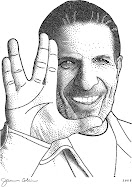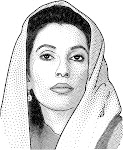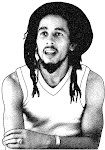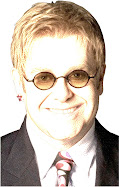
Cosby: Blacks Should Fix Own Communities - AP
The Injustice Bill Cosby Won't See - Washington Post
Talking Points
Bill Cosby vs. Michael Eric Dyson vs. James C. Collier
Michael Eric Dyson takes Bill Cosby on head-to-head with each issue that he brings up in his now infamous NAACP speech from May 17, 2004. Here are some highlights:
Cosby: "Just forget telling your child to join the Peace Corps. It's right around the corner. (laughter) It's standing on the corner. It can't speak English. It doesn't want to learn English. I can't even talk the way these people talk."
Dyson: "Cosby's poisonous view of young folks who speak a language he can barely parse [Ebonics] simmers with hostility and resentment." And "Fat Albert and the Cosby Kids, Cosby's lauded '70s television cartoon series, won greater acceptance for a new cast of black identities and vernacular language styles. Cosby has made money and gained further influence from using forms of black English he now violently detests."
Collier: “I think Mr. Cosby’s point is that today’s Black kids are not bi-lingual, in the sense that Black English is unique and ubiquitous, nor are they, to a greater extent, bi-cultural, to the requirements of society. The ability to move ‘seamlessly’ between the ‘standard English’ requirements of school and work and the informal language of the street is a prerequisite both for advancement and maintaining uniqueness.”
Cosby: "People with their hat on backwards, pants down around the crack. Isn't that a sign of something, or are you waiting for Jesus to pull his pants up (laughter and clapping)."
Dyson: "Baggy clothes express identity among black youth, and not just beginning with hip-hop culture. Moreover, young black entrepreneurs like Sean 'P. Diddy' Colms and Russell Simmons have made millions from their clothing lines."
Collier: “Emulating styles is one thing; emulating prison-inspired dress is another. When style of dress implies a mindset and behavior that includes the rejection of education, and other advancing assimilations, including lawful behavior, those styles should be recognized as not mere expressions of identity, but rather as counter-productive behavior. The fact the Mister’s Combs and Simmons have made millions commercializing prison-inspired styles does not make it acceptable.
Cosby: "Those people are not Africans, they don't know a damned thing about Africa. With names like Shaniqua, Shaligua, Mohammed and all that crap and all of them are in jail."
Dyson: "Names like Shaniqua and Taliqua are meaningful cultural expressions of self-determination.I think that it does have something to do with African roots of black identity, and perhaps with Cosby's ignorance and discomfort with those roots.Cosby's ornery, ill-informed diatribe against black-naming is a snapshot of his assault on poor black identity." And "Given the vicious way blacks have been targeted for incarceration, Cosby's comments about poor blacks who end up in jail are dangerously naïve and empirically wrong."
Collier: “Black knowledge of Africa and Black naming conventions have little to do with each other, or the disproportional incarceration rate of young Black men. The frustration of the elder Cosby, with Black lawlessness, is reflected as impatience with superfluous naming behaviors. While his editorial argument is fallacious, his frustration with high and rising rates of Black incarceration is more than legitimate.
Cosby: "The city and all these people have to pick up the tab on them [poor African Americans] because they don't want to accept that they have to study to get an education."
Dyson: "If the rigidly segregated education system continues to fail poor blacks by failing to prepare their children for the world of work, then admonitions to 'stay in school' may ring hollow.In suburban neighborhoods, there are $60-million schools with state-of-the-art technology, while inner city schools desperately fight for funding for their students."
Collier: “Mr. Cosby is correct that there is a tab for the under performance of Blacks - $440 billion dollars per year in loss GDP to be exact. While Blacks pay the greatest price, all of America pays as well. Inequities in school funding certainly exist, but it is the consistent failure of Blacks to mitigate whatever gaps exist in resources, however small or large, with self-determination and commitment to their better futures, via assimilation, that in turn places them on the bottom.
Cosby: "I'm talking about these people who cry when their son is standing there in an orange suit. Where were you when he was two? (clapping) Where were you when he was twelve? (clapping) Where were you when he was eighteen, and how come you don't know he had a pistol? (clapping)"
Dyson: "And then there are the problems of the working poor: folk who rise up early every day and often work more than forty hours a week, and yet barely, if ever, make it above the poverty level. We must acknowledge the plight of both poor black (single) mothers and poor black fathers, and the lack of social support they confront. Hence, it is incredibly difficult to spend as much time with children as poor black parents might like, especially since they will be demonized if they fail to provide for their children's basic needs."
Collier: “Growing up poor is difficult, no matter who a person is or where they live – but it can never be a codified excuse for failure in the midst of opportunity, however imperfect that opportunity. Rising above the status handed to us at birth is a personal endeavor that we must ultimately take as an individual responsibility, not because others are not contributors, but rather because the question ‘am I my brother’s keeper?’ speaks to an ideal, not the reality.
Cosby: "All this child knows is 'gimme, gimme, gimme.' These people want to buy the friendship of a child.and the child couldn't care less.and these people are not parenting. They're buying things for the kid. $500 sneakers, for what? And they won't spend $250 on Hooked on Phonics. (clapping)"
Dyson: "And yet, some of the engaged critique he [Cosby] seeks to make of black folk—of their materialism, their consumptive desires, their personal choices their moral aspirations, their social conscience—is broadcast with much more imagination and insight in certain quarters of hip-hop culture. (Think of Kanye West's track, "All Falls Down," which displays a self-critical approach to the link between consumption and the effort to ward off racial degradation.)"
Collier: “Black consumption reflects both a willingness to trade short-term comfort and enjoyment for long-term gains, as well as a vulnerability, similar to that of the rest of America, to the ‘take no prisoners’ marketing of material goods. Hip/hop and Rap music, contrary to Mr. Dyson, largely glorifies this short-term strategy and tactic for living.
Cosby: "I don't know who these people [poor African Americans] are."
Dyson: "The poor folk Cosby has hit the hardest are most vulnerable to the decisions of the powerful groups of which he has demanded the least: public policy makers, the business and social elite and political activists. Poor black folk cannot gain asylum from the potentially negative effects of Cosby's words on public policy makers and politicians who decide to put into play measures that support Cosby's narrow beliefs."
Collier: “Our constitution should be amended to say citizens are guaranteed ‘life, liberty, and the competitive pursuit of happiness...” The poor people Mr. Cosby is saying he does not understand, suffer disproportionately from their choices, ahead of the rest of us. The passage of laws cannot offer the promise of not becoming someone else’s victim, but rather the opportunity of not becoming a victim, through the protection of available choices.
Cosby: "They're [poor African Americans] just hanging out in the same place, five or six generations sitting in the projects when you're just supposed to stay there long enough to get a job and move out."
Dyson: "Cosby completely ignores shifts in the economy that give value to some work while other work, in the words of William Julius Wilson 'disappears.' In our high-tech, high-skilled economy where low-skilled work is being scaled back, phased out, exported, or severely under-compensated, all the right behavior in the world won't create better jobs with more pay."
Collier: “I think Mr. Cosby is proposing that there is no substitute for the competitive response of the individual that converts social program support into economic change, with a high degree of urgency. Macro-economic shifts are going to occur, but it is a choice as to whether any group is disproportionately affected, as a function of their reaction to the change(s).
Cosby: "God is tired of you."
Dyson: "No matter how you judge Cosby's comments, you can't help but believe that a great deal of his consternation with the poor stems from his desire to remove the shame he feels in their presence and about their activity in the world. There's nothing like a formerly poor black multimillionaire bashing poor blacks to lend credence to the ancient assaults they've endured from the dominant culture."
Collier: “We all feel shame. However, the position of Black’s at the head of the line at America’s ‘complaint window’ has worn thin, including victim mentalities. This statement of frustration sums up what everyone, looking across the debate at their counterparts, feels with the issues of Black plight. The fact that Mr. Cosby utters these words is a function and combination of his celebrity status and dramatic wit.
Cosby: "You can't land a plane with 'why you ain't.' You Can't be a doctor with that kind of crap coming out of your mouth.where did these people get the idea that they're moving ahead on this."
Dyson: "Cosby's overemphasis on personal responsibility, not structural features, wrongly locates the source of poor black suffering—and by implication its remedy—in the lives of the poor."
Collier: “Mr. Cosby represents his personal reality – one of starting poor and ending up rich, largely because of choices and actions he took significantly of his own volition. This is what worked for him, as well as many others. Mr. Dyson’s ‘structure’ or system will never relocate Black people to parity with Whites, as it has no motive or opportunity, or DNA, to accomplish this. Personal responsibility is the final frontier, whether we like it or not.
James C. Collier
READ MORE ACTING WHITE...
Technorati Tags: Bill Cosby, Acting White, Michael Eric Dyson, Black responsibility, Victim mentality












































2 comments:
What's up James you did a great job with your analysis of this issue. Loved it. Peace
http://www.thecobraslair.com/images/COSBYSHOW2004NATIONAL.gif
I find it interesting that there always seems to be a BOOK promotion coinciding with all of these "professional" black conservatives' war declarations on other African-Americans.
Why do you think that is?
--Cobra
Post a Comment